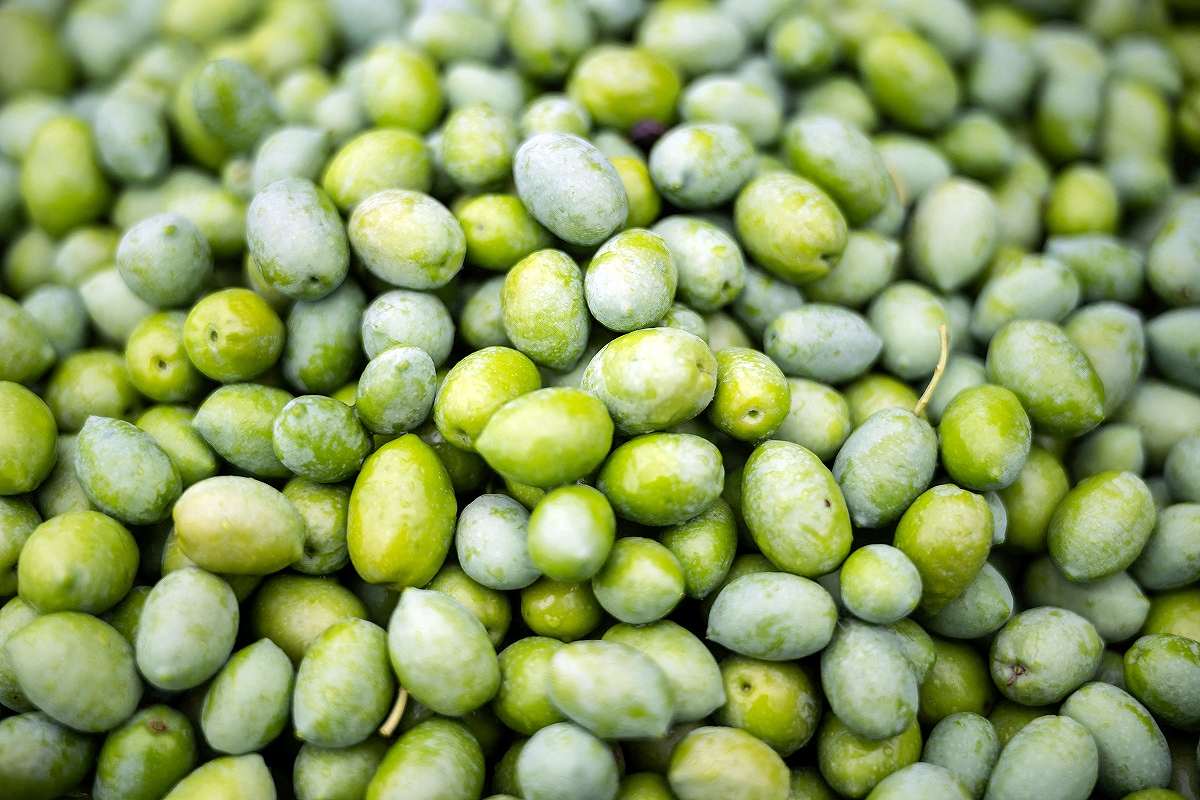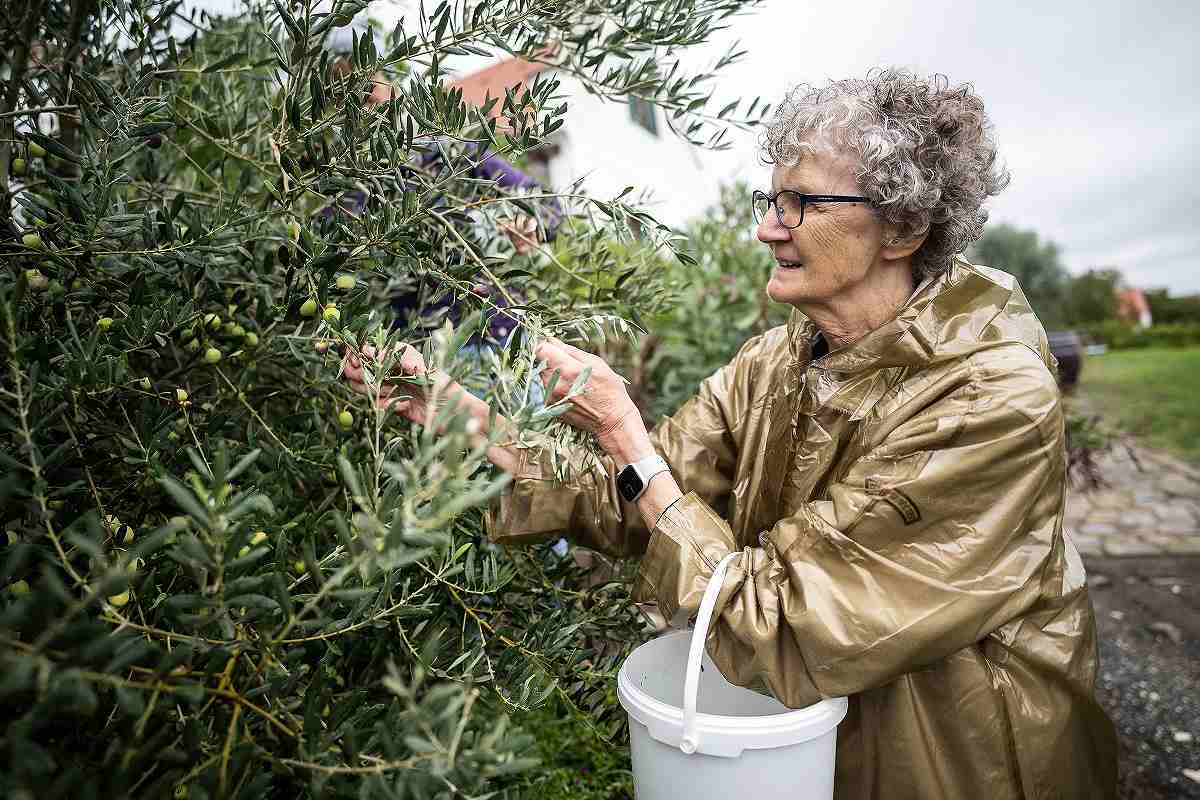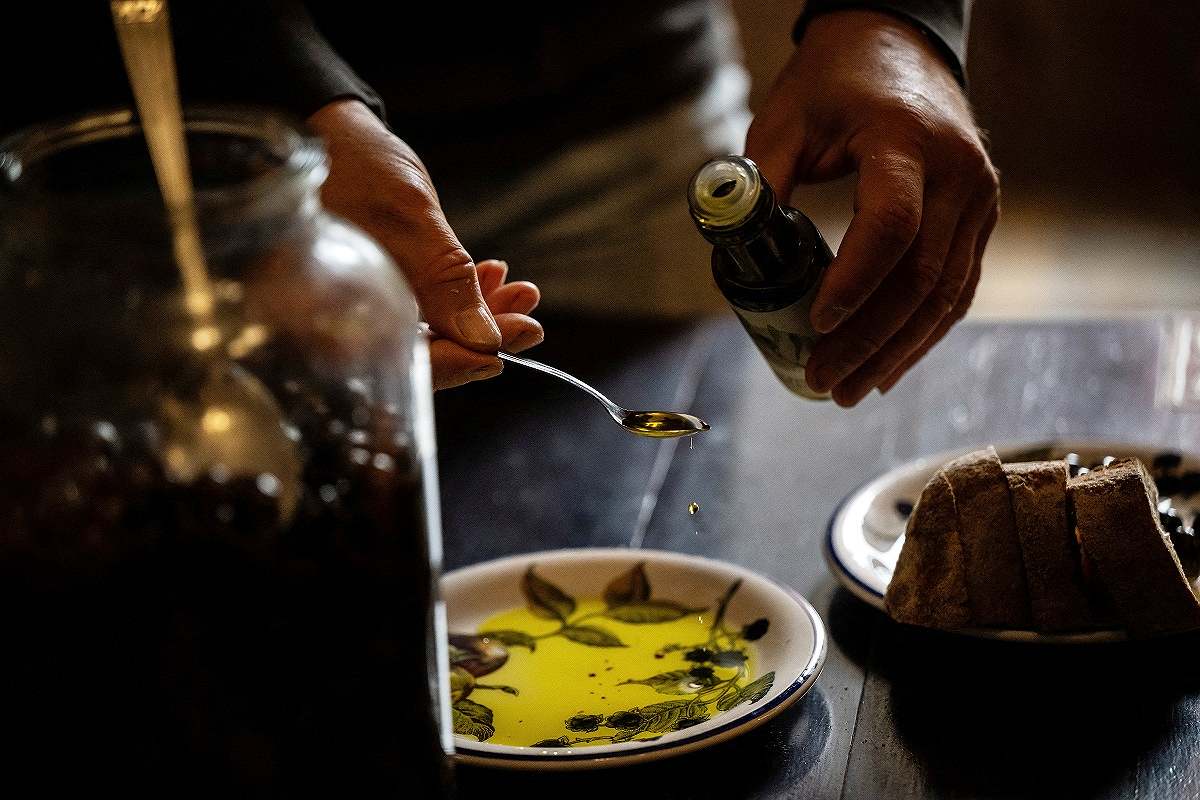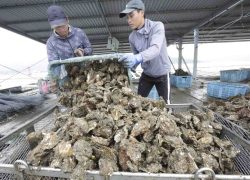
Harvested olives
15:56 JST, October 19, 2024
HEGYMAGAS, Hungary (Reuters) — Wine maker Csaba Torok, who grows olives on Hungary’s warm southern slopes near Lake Balaton, believes his trees from southern Europe have found a successful new home as Europe’s climate gets warmer.
Torok, 55, got his first three small olive trees from Spain around 2008. Two froze to death the first winter but one survived, prompting Torok to buy around 200 more over the years to plant in his vineyard on Hegymagas, a volcanic butte formation with sunny slopes, ample rain and rich soil.
“I see these trees as an integral part of the future landscape here,” Torok said, as he harvested the olives with friends, noting the local microclimate increasingly suits the trees.
He takes his hand-picked olive crop to neighboring Slovenia where his virgin olive oil is made and which he sells for 4,500 forints ($12.35) per 0.1 liters.


Left: A woman harvests olives in Hegymagas, Hungary, on Oct. 4. Right: Csaba Torok pours his homemade olive oil onto a plate for tasting.
As southern Europe is hit by more frequent droughts and scorching heatwaves, the areas where olive groves can flourish appear to be shifting northward, he said.
Hungary’s winters have become palpably milder over the past years. Europe is the fastest warming continent in the world, the European Environment Agency said last month, and faces a greater risk of drought in the south.
Spain, which usually supplies around 40% of the world’s olive oil, has suffered poor olive harvests in the past two years due to heatwaves and a prolonged drought, doubling olive oil prices to record levels.
Recently, the Spanish farm ministry said the first estimates for this year’s harvest indicated a recovery, with 2024-2025 olive production forecast at 1,262,300 tons, up 48% from the previous harvest.
‘Mediterranean feeling’
In southern Hungary, near the city of Pecs, Gabor Stix has been experimenting with an olive grove for years, cultivating trees for sale. Stix expects all his trees grown this year to be sold by March.
“Olive trees love this climate … One would think Hungary is not suitable for olive production, but it is,” Stix said.
Even north of Hungary, in Slovakia, people have been buying olive trees for their gardens to have a “Mediterranean feeling.” In the village of Iza, garden center owner Istvan Vass has imported 25 truckloads of olive trees from Spain this year, selling them for €300-€500 each.
As buyers arrived to choose trees, Vass warned that during the first winter the trees might suffer damage from sub-zero temperatures, but covering them helps.
“There are lots of olive trees planted outside in the gardens and they cope really well,” he said.
Top Articles in Science & Nature
-

Japan Institute to Use Domestic Commercial Optical Lattice Clock to Set Japan Standard Time
-

iPS Treatments Pass Key Milestone, but Broader Applications Far from Guaranteed
-

Record 700 Startups to Gather at SusHi Tech Tokyo in April; Event Will Center on Themes Like Artificial Intelligence and Robotics
-

iPS Cell Products for Parkinson’s, Heart Disease OK’d for Commercialization by Japan Health Ministry Panel
-

Japan to Ban Use of Power Banks on Airplanes
JN ACCESS RANKING
-

Japan PM Takaichi’s Cabinet Resigns en Masse
-

Japan Institute to Use Domestic Commercial Optical Lattice Clock to Set Japan Standard Time
-

Israeli Ambassador to Japan Speaks about Japan’s Role in the Reconstruction of Gaza
-

Man Infected with Measles Reportedly Dined at Restaurant in Tokyo Station
-

Videos Plagiarized, Reposted with False Subtitles Claiming ‘Ryukyu Belongs to China’; Anti-China False Information Also Posted in Japan























